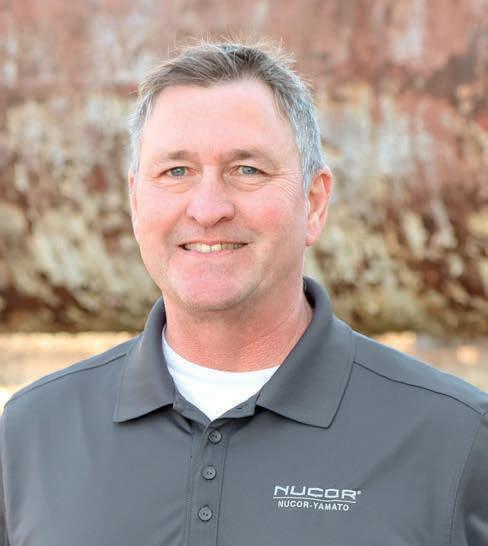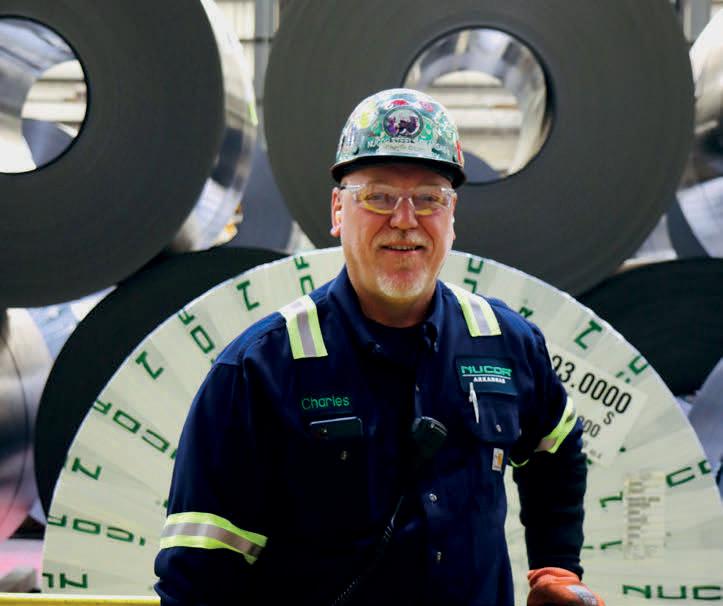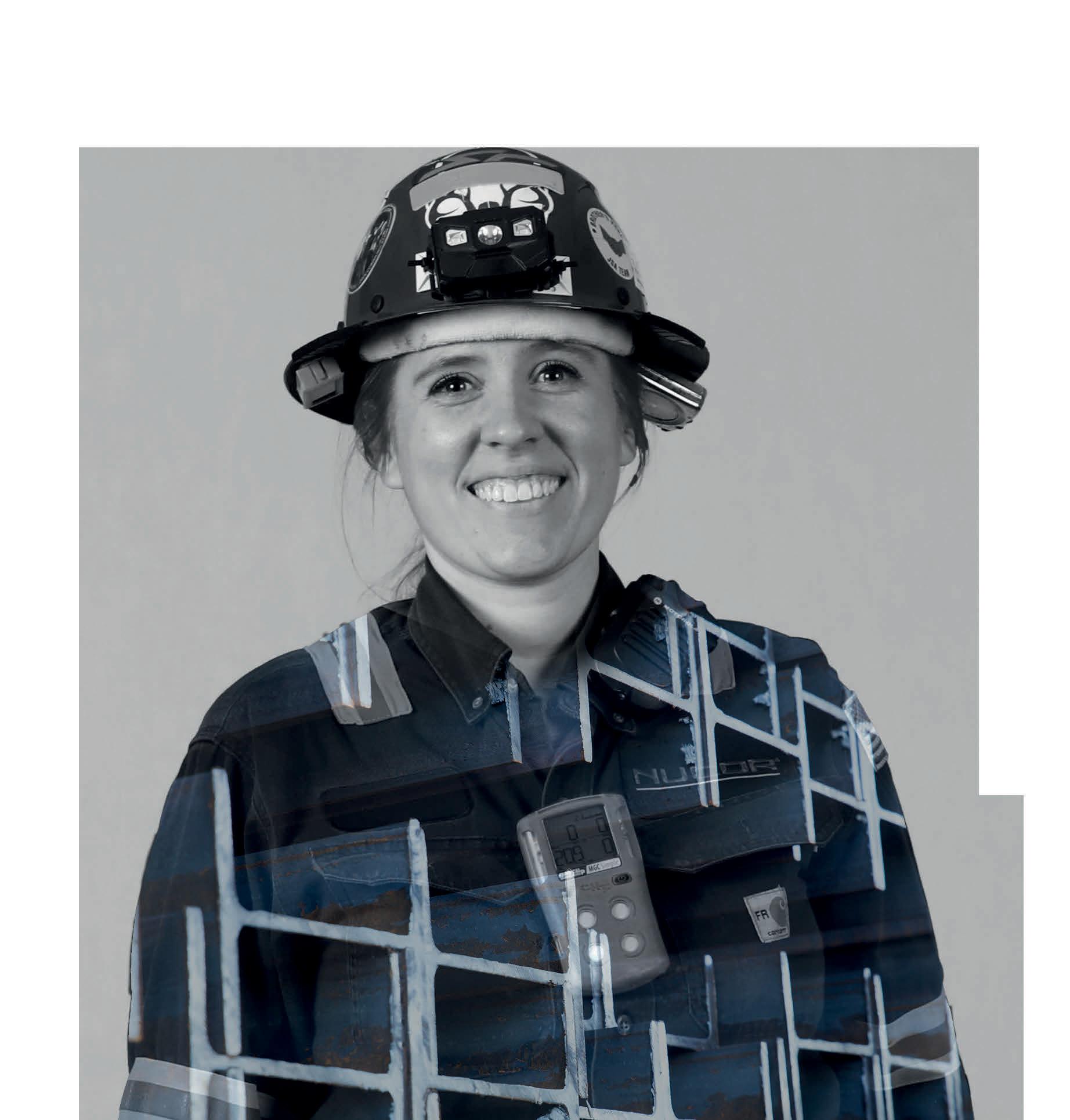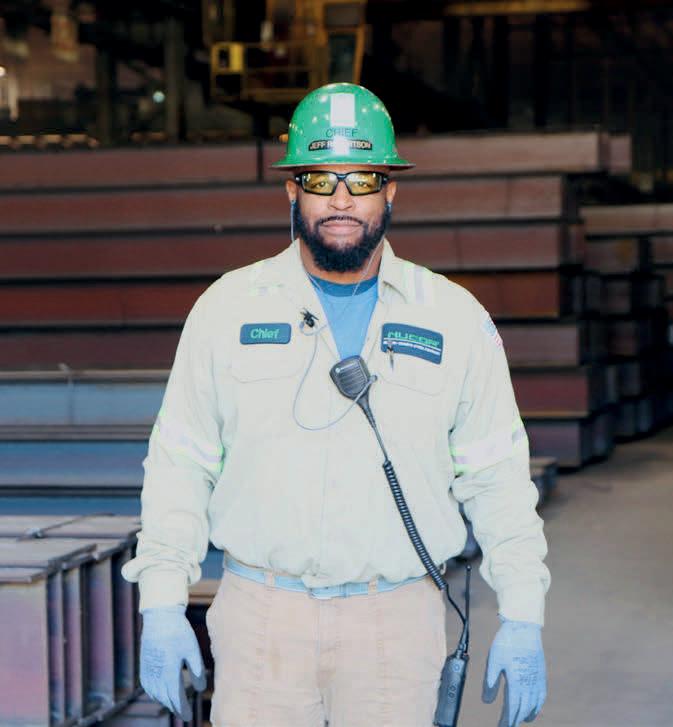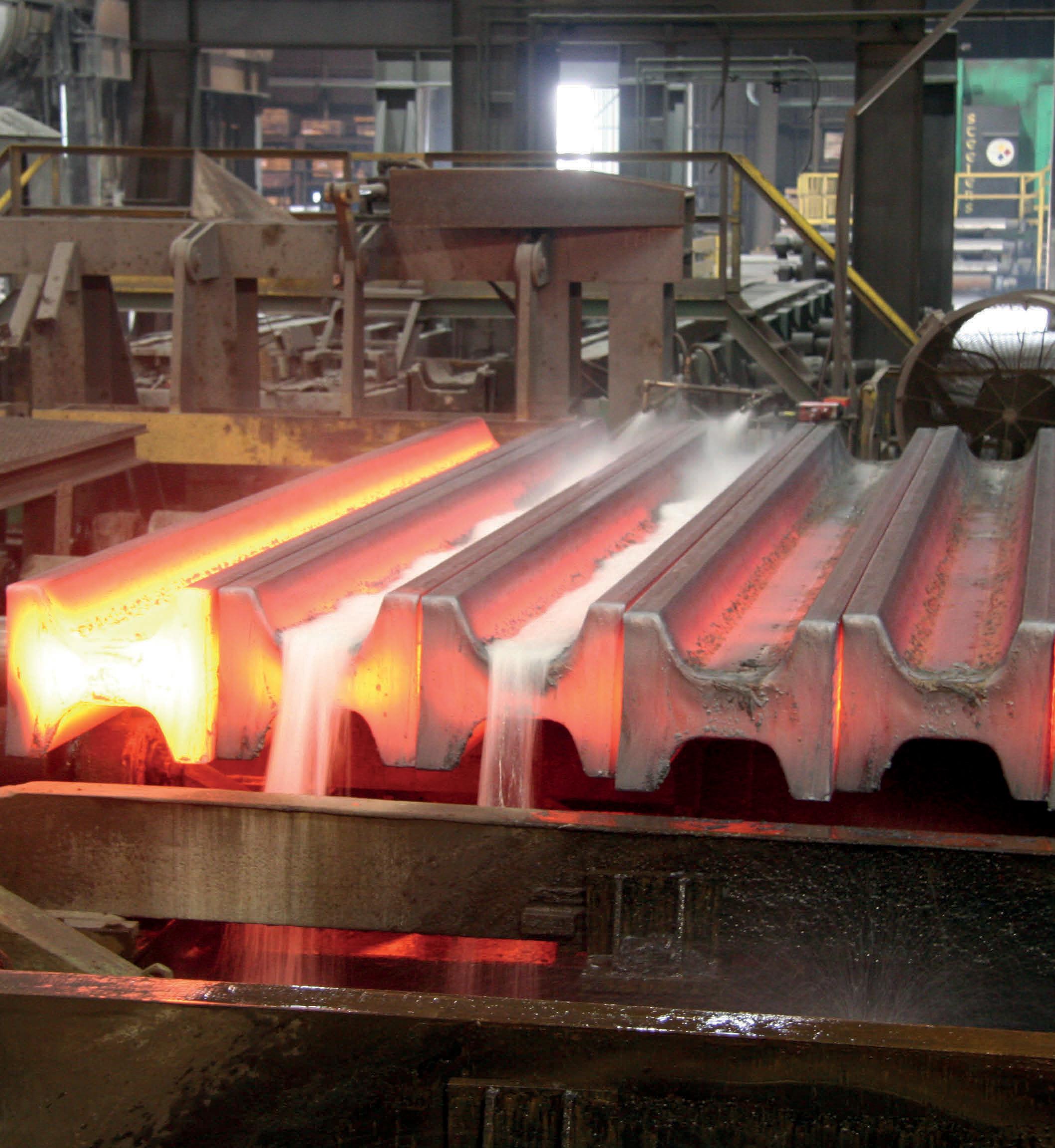
2 minute read
A REVOLUTION IN STEEL
from BluePrint 2023
LOGAN NIELSEN: Nucor-Yamato has a good relationship with Missouri University of Science and Technology, where I went to school. They did a recruiting event on campus one spring, and I applied for a co-op when I was a secondsemester junior.
LN: We have a position called a technical analyst and they do a lot of things;, they’re the jack-of-all-trades in IT. A technical analyst is the frontline to our IT department, interfacing with customers a lot more than a software engineer. They are always on call.
LOGAN NIELSEN Information Technology Lead, Nucor-Yamato Steel
Hometown: Rapid City, South Dakota
Age: 27
Years with Nucor: 5
I did a seven-month co-op with the IT team and fell in love with everybody here. And really fell in love with the idea of development in the manufacturing world as opposed to the tech industry. I got a full-time offer before I finished my co-op contingent upon successful completion of my degree, and I accepted it.
BP: What’s the difference between a co-op and an internship?
LN: Generally, an internship lasts over the summer; Nucor’s co-op spans a summer and a semester, so you get an extra four or five months, which also allows you additional time to learn and work on your own.
If somebody calls our IT hotline, they’re the people who answer the call. That’s critical because if a monitor goes out in the middle of a crane, someone has to go replace that because they use those screens to keep people safe. If there are administrative issues – the technical analyst handles it; if there’s access right issues – the technical analyst handles that. That’s a job you only need an associate degree for, but it is really one of the most important jobs that we have in IT because it interfaces with customers all over, all the time.
Brian Abbott
Hot Mill Process Control
Lead/Nucor Steel Arkansas
Hometown: Steele, Mo.
Age: 45
Years with Nucor: 15
BLUEPRINT: What classes did you take in high school that prepared you for a career in manufacturing?
BRIAN ABBOTT: I went the vocational route. I took shop and electronics classes at a vocational-technical school my junior and senior year.
BP: Knowing what you know now, what classes would you recommend someone take to prepare for a career like yours?
BA: Physics and any type of programming class like Python, C++ would be helpful. Also, PLC programming classes would be very beneficial.
BP: What’s been your career progression at Nucor?

BA: I was originally hired as a shift electrician and then moved on to the process control group where we complement what the electricians do. We look at quality, reliability, performance, things like that. Basically, I’ve taken ownership of an area, the hot mill. I get calls all the time. I’m on call 24/7 if something breaks. I’m kind of the last line of defense; if the electricians can’t fix it, they call me
BP: What are you most proud of in your career thus far?
BA: In our manufacturing process, material goes through the mill and is supposed to run up and make a nice, pretty coil. But if something happens in the process where it doesn’t make it to that, we call that a mill wreck. Part of what a process control engineer does is you investigate, get down to the root cause, define what happened, and then implement solutions to keep that from happening again.
The process control group, since I’ve been here, has reduced those from 500 to 600 a year down to 50 a year or less. That’s something I’m really proud of.
NUCOR: A REVOLUTION IN STEEL





